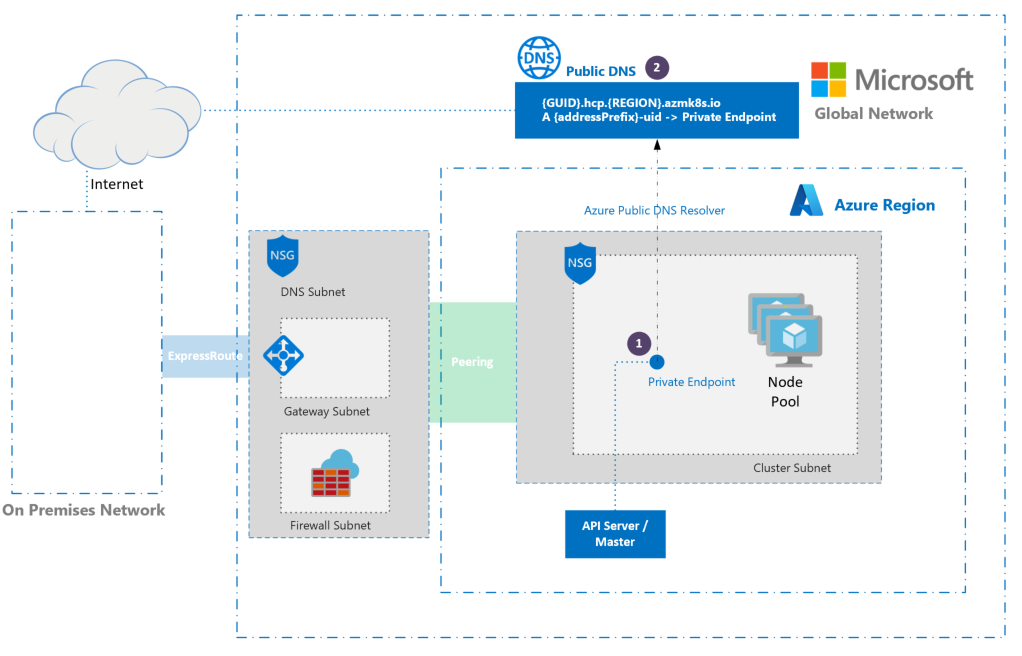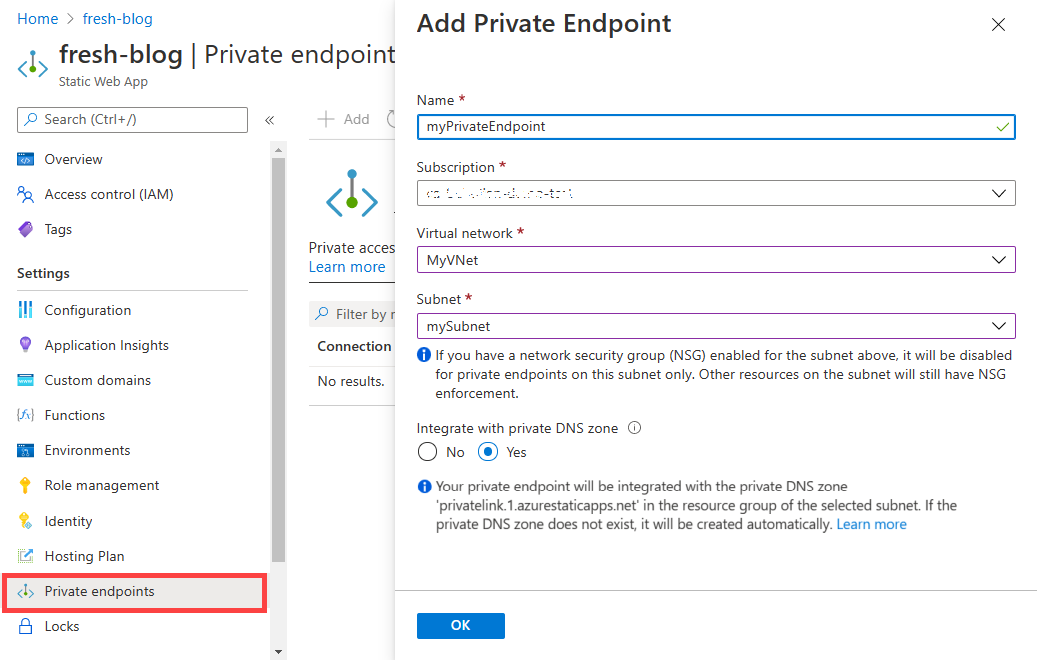Monthly Azure news August 2021
In this month’s summary read about some important updates related to Azure Cosmos DB, AKS, Flexible Server and Azure Functions support that will be ending in 2022. We would appreciate it, in case you share the post with your community. Enjoy the read!
Contents
- Publishing Docker Image GitHub Workflows
- General Availability: Azure Red Hat OpenShift support for OpenShift 4.7
- Flexible Server now has additional features
- Azure Blob storage – Inventory generally availability
- General availability: Public DNS support for private Azure Kubernetes Service clusters
- Azure Static Web Apps adds public preview support for Private Endpoints
- General availability: AKS support for Kubernetes 1.21
- General availability: CSI storage driver support on Azure Kubernetes Service
- Azure Cosmos DB: Continuous backup with point in time restore now in general availability
- Azure Functions support for Node 8 is ending on 28 February 2022
- Azure Functions support for Python 3.6 is ending on 30 September 2022
- Critical vulnerability in Azure Cosmos DB – Act now!
Publishing Docker Images GitHub Workflows
A GitHub workflow in GitHub is a fully via YAML file configurable and automated process which consists of one or more jobs which can run parallel. Learn about GitHub Actions following the links:
It is now possible to trigger a workflow for publishing a dedicated image each time a new event is created. For more details visit this site.
General availability: Azure Red Hat OpenShift support for OpenShift 4.7
Microsoft and Red Hat work together to provide the Azure Red Hat OpenShift services. The offer is highly available and fully managed OpenShift Cluster based on your own needs and demands. You can use registry, networking, storage and also Continuous Integration and Continuous Delivery based on your already implemented tools and work processes. Also, it is possible to use built-in solutions for automated code management and container or application builds. Feel free to scale as you need it.
The new version offers support for OpenShift 4.7. It uses Kubernetes 1.20 with CRI-O runtime. For deep dive into the full functionality please consult the Microsoft documentation.

Flexible Server now has additional features
Private DNS zone integration for Azure Database for PostgreSQL – Flexible Server in public preview
With this new preview feature it is possible to connect two Azure Database PostgreSQL Flexible Servers. Also, a FQDN can be used within peered networks for the Flexible server to enhance usability.
Public preview of Azure Database for PostgreSQL and MySQL– Flexible Server now offers reserved instance pricing
In contrast to pay as you go, you reserve instance for a specific period of time and save of the complete operational costs. This feature is now available for the Azure Database PostgreSQL and MySQL.
Azure Blob storage – Inventory generally availability
The Azure Blob Storage inventory feature can be used to get a detailed report of containers, blobs, snapshots and blob versions in a storage account. It will provide data such as size, encryption status, age and more. Every part of the report can be customized and defined with a custom scheme.
Find more details following the link.
General availability: Public DNS support for private Azure Kubernetes Service clusters
You can now use public DNS in combination with private Azure Kubernetes Service clusters. This simplifies a name resolution. You can specify --enable-public-fqdn (1) by provisioning a private AKS cluster and an additional record for FQDN is created in the Azure public DNS. If you in addition set no private DNS zone with --private-dns-zone none, then there will only be a public FQDN (2).
You can connect to the private cluster in different ways:
- Create a VM in the same Azure Virtual Network (VNET) as the AKS cluster
- Use a VM in a separate network and set up Virtual network peering. See the section below for more information on this option
- Use an Express Route or VPN connection
- Use the AKS Run Command feature

Azure Static Web Apps adds public preview support for Private Endpoints
Eliminate your expose to the outside by using private endpoints and use IP addresses located in your Azure Virutal Network (VNET) for static web apps. If you configure the private endpoint link, the web app is integrated in your own VNET and no longer available on the public internet, so only your defined machines will have access to it. All you need is a Static Web App Plan, an Azure VNET and you are ready to go. The settings for the private Endpoint can be made via the Private Endpoint tab in the Web App Settings.

General availability: AKS support for Kubernetes 1.21
AKS support for Kubernetes release 1.21 is now generally available. Already existing features are enhanced and new features are added. For a full list of changes visit the changelog of the official release via GitHub. The main features include the memory manager which improves performance for applications. Also a scheduler is now creating more flexibility and control on how nodes are chosen to deploy pods. With ReplicaSet downscaling there are two new strategies provided to downscale a cluster (semi-random and core based). This is especially important for workloads with high availability requirements.
General availability: CSI storage driver support on Azure Kubernetes Service
With the CSI (Container Storage Interface) storage driver support, it will be possible to natively leverage Azure Disk Storage and Azure File storage for your Azure Kubernetes Server. Find all the details here.

Azure Cosmos DB: Continuous backup with point in time restore now in general availability
Azure Cosmos DB now supports point in time restore. This can be helpful if an accidental deletion of a container or account happened. It is also possible to recover a deleted account, database or container. You can restore to any region where backups exist. The image depicts the situation where a container has a write region (West US) and read regions East and East US 2. It is backed up to a remote Azure Blob Storage in the respective region. A restore can happen during the retention period of the backup which is up to 30 days back.
In a steady state, all mutations performed on the source account (which includes databases, containers, and items) are backed up asynchronously within 100 seconds. You can choose to restore any combination of provisioned throughput containers, shared throughput database, or the entire account. Be aware that there are different configurations that will NOT be restored like VNET, Firewall and private Endpoint settings, Regions or concistency settings.

Azure Functions support for Node 8 is ending on 28 February 2022
It is recommended to upgrade to Node 14 to prevent service disruption or facing problems with security as the Node 8 support has reached the end of community support. This leads to the fact that hosted Azure Functions using Node 6 will be unsupported after February 28 in 2022.
Azure Functions support for Python 3.6 is ending on 30 September 2022
Python 3.6 reaches the end of community support. Therefore Azure Functions using it will not be supported soon. To prevent service disruption or facing problems with security, it is recommended to upgrade to Python 3.8 accordingly.
Critical vulnerability in Azure Cosmos DB – Act now!
In case you missed our blogpost on critical vulnerability in Azure Cosmos DB – Act now!, check the following link out and read all the details related to this important topic.